The impossible quest to finish every CRPG in chronological order
Over a decade ago, Chester Bolingbroke set himself a mission that will never end.
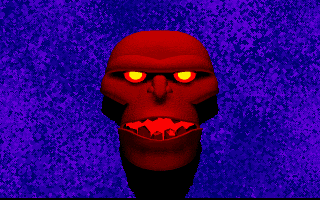
It's one thing to attempt to set out to play every single game in an entire genre. But to finish each one in the order they released and then to blog detailed accounts of them is a quest beyond belief. That's what Chester Bolingbroke, author of CRPG Addict, set out to do in February 15, 2010, when he wrote the blog's first post. Over 10 years later, he's still going.
Chester has ventured through the very first mainframe-based computer role-playing games, charted the rise of Ultima, and battled through generations of computers. He's faced adversity, balancing the thousands of hours his adventure demands against the needs of his personal life. He's worked on it from his home in Maine, grappling with emulators and translations, and from hotels across the US while travelling for his job. He gave up on the whole endeavour once. But he's just as active now as he was when he started, and that's despite knowing that the whole thing is impossible.
It took him over two years to play through the games of 1992, from Wizardry: Crusaders of the Dark Savant ("has a way of feeding the player overwrought prose") to Ultima Underworld: The Stygian Abyss ("groundbreaking, innovative, well-produced, addictive, enormously fun to play—and at the same time a bit disappointing in what they did and didn't do with the story"). And also the games you won't remember, from Bandor: The Search for the Storm Giant King ("I binged a decent chunk of TV series episodes while playing the game because I needed some other source of entertainment") to Ultizurk II: The Shadow Master ("extremely basic").
Chester Bolingbroke isn't the CRPG Addict's real name, since he prefers to stay anonymous. "I'm mostly concerned that if anyone in my work life finds out about the blog and I'm late with some project and they go on my timeline and see that I've posted a couple of entries on games." But he goes by Chet on the blog, which is his real-life nickname too, so that's what we'll call him. As he forges ahead, Chet knows the number of games released per year will only increase. "If I don't start rejecting more games or finding other ways to change how I approach the chronology, I'll die before I get out of the 1990s," he says.
History lesson
Still, he probably knows more about the first years of the CRPG than anyone alive, not that he takes an academic line on the genre. While he works a good sense of the context of these games into his posts—where they came from and where they've gone next—Chet writes about them from a personal perspective, founded on what he values in his favourite genre. It's a love that began way back around 1984, when he was 11 or 12 and played an RPG called Questron on his friend's Commodore 64.
"It just bowled me over, the idea of the persistency of the game. The character isn't just alive long enough to fight a few times and then you had to insert a new quarter, you had a persistent character who you could save and it had this epic quest that would take multiple hours over several days of playing, and I ended up taking over his computer and playing for the rest of the day. I think he got mad at me at one point. It became part of my life from that moment on."
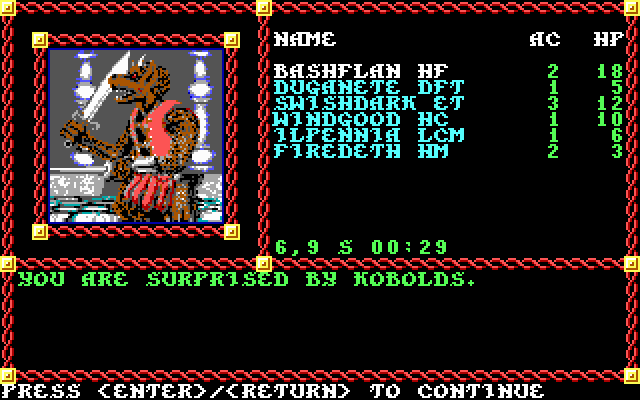
That love led Chet to put together a working definition for what makes for a CRPG. It has to have character development, allowing you to get more powerful over the course of a game. Characters' stats should affect how well they fight, as opposed to pure player skill. And there has to be an inventory which allows you to choose items to use, wear, and wield. Along with the cardinal rule of no console games (which he broke when he played Final Fantasy), these rules determine the list Chet has set for himself to play. "I haven't otherwise fully played an RPG on my computer in over 10 years that I didn't play as part of my blog."
Keep up to date with the most important stories and the best deals, as picked by the PC Gamer team.
If I don't start rejecting more games or finding other ways to change how I approach the chronology, I'll die before I get out of the 1990s.
On top of these core characteristics, Chet has also developed a keen sense for what he values in CRPGs: a wide world, a sense that your characters are a part of that world, and a richness to the things that you do and what happens as a result. He likes descriptions of weapons in your inventory and good NPC conversations, though he says he could do without voiced dialogue.
All these factors, which aren't exactly controversial, come together in a rating system Chet set up a couple of months after starting CRPG Addict, which kind of is. Named GIMLET after his favourite cocktail (and charmingly awkwardly made to stand for Game Innovation, Merriment, Likability, and Engagement Test), it features 10 characteristics, which rate things like game world (lore, whether it reflects your actions), economy (whether there's good stuff to buy), gameplay (difficulty, linearity, pacing), and each contributes up to ten points to an overall 100-point scale.
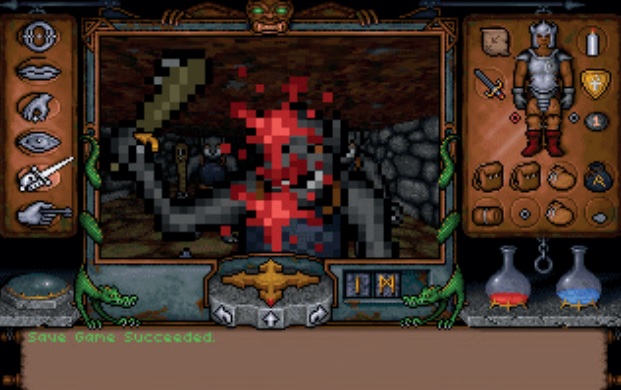
"It was my attempt to quantify what I enjoy about games and give them a relative ranking," says Chet. "But it causes more strife than it should. People look at something quantitative and think it's supposed to be objective, so they start arguing about scores. I'm considering throwing the whole thing away because it creates all kinds of tension when I don't intend it. I just want to be able to quickly sort my list and say, all right, which games have the best story, or the best approach to character development? Maybe I should leave the individual scores and take out the total? I don't know."
High score
Still, GIMLET makes for some fascinating discussion of games, such as in his summing up of Ultima VII: The Black Gate, which we all understand as a milestone in CRPG design with its dynamic time-of-day NPC interactions and deep detail. GIMLET rated it 51 out of 100. "I want to thank those of you who are departing my blog at this point; it's been nice having you as readers," Chet wrote.
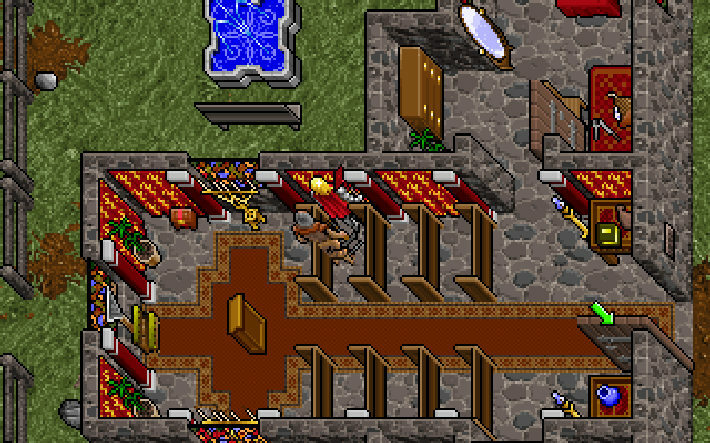
You may have forgotten Ultima VII's terribly chaotic combat, the weird scale of its world, the lack of choice, the infinitely respawning enemies. "Ultima VII is a perfect example of a game that perhaps adding up its various parts doesn't create a score that's representative of the quality of the game," says Chet, who loved it just as he loves the Ultima series as a whole. (Ultima VI holds a high GIMLET rank for gameplay and graphics, sound, interface, while V holds a high rank for NPCs and economy.)
This isn't to suggest that CRPG Addict is a hotbed of score arguments and ire. Quite the reverse; its comments and community are great. "If you just read my entries and not the comments, you're only getting half the blog, because a lot of stuff gets filled in," says Chet. "There's quality material there." In fact, one of the most charming things about CRPG Addict is that it has the air of the fabled old web, when we'd surf niche interest sites and get to know like-minded nerds. "I feel like I've been lucky since the beginning," says Chet. "I think it helped that I came up with the idea from posting on Reddit about having won Rogue, and someone suggested I started a blog covering my experiences, and that day I started, and I got some of those readers immediately."
Blog jam
Chet had seen the blog as an outlet for the hours he was already spending playing games. "I was very concerned about how much time I spent on gaming. Trying to give it up probably wasn't going to work for me, so I tried to legitimise it by turning it into a project, something I could make a list, make notes, and have some tangible outcome. I'm not just burning four hours, I have a result that people read, and now they contribute money to me through Patreon, which helps me feel even better about the whole thing."
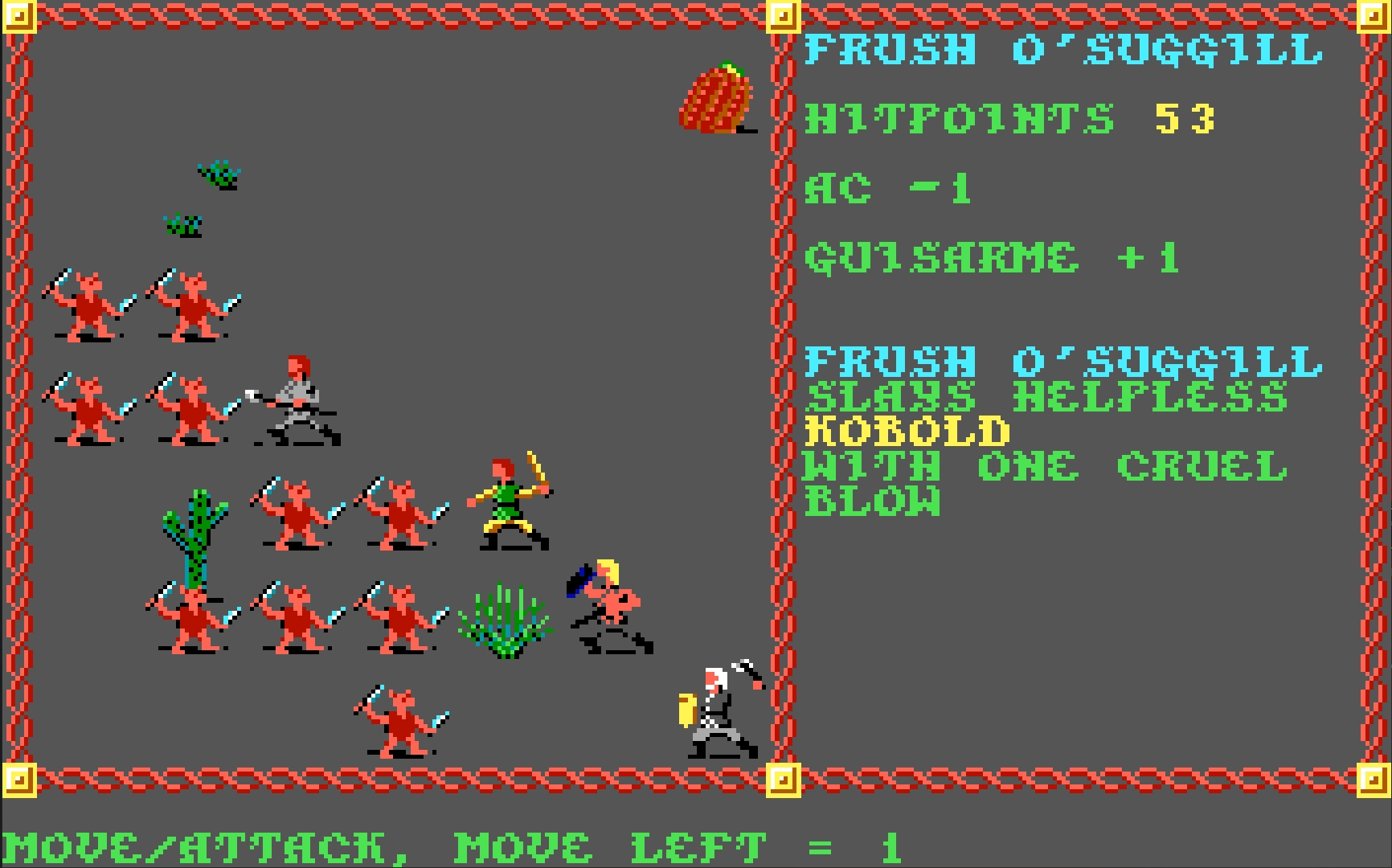
Still, in 2012 he briefly gave up on the project. He was incredibly stressed out with work. "I was probably chronically late on two or three things and I think I was on a bit of a low point in terms of the games I was playing. Nothing was really gripping me; the blog began to feel more like work than my real work, which I needed to prioritise." But he's now slightly embarrassed by the whole episode, because after taking a holiday he found himself wanting to return, realising he just needed a break. "I wouldn't say it's healthy, though. I've always said that calling it the CRPG Addict wasn't entirely a joke, and there's a dark side to it. There's no question that I spend more time on it than I should."
Regardless, as he settles into what he calls quasi-retirement — now teaching at a university and living in a quiet Maine town with a view of a harbour — Chet can only see himself putting more time into the project. But he's well aware that his completionist attitude can't persist as he plays on. The annual number of releases keep swelling and the genre keeps evolving. He bemusedly observes that Assassin's Creed games fit his definition of a CRPG. So he's not yet sure how, but he'll need to tighten his terms, or jettison a whole category, such as shareware games. "There's always going to be more games to cover than I have time, so literally this project will end with my death. Or, the end of blogging, I suppose, if I seem to be shouting at the air and no one's listening any more."

